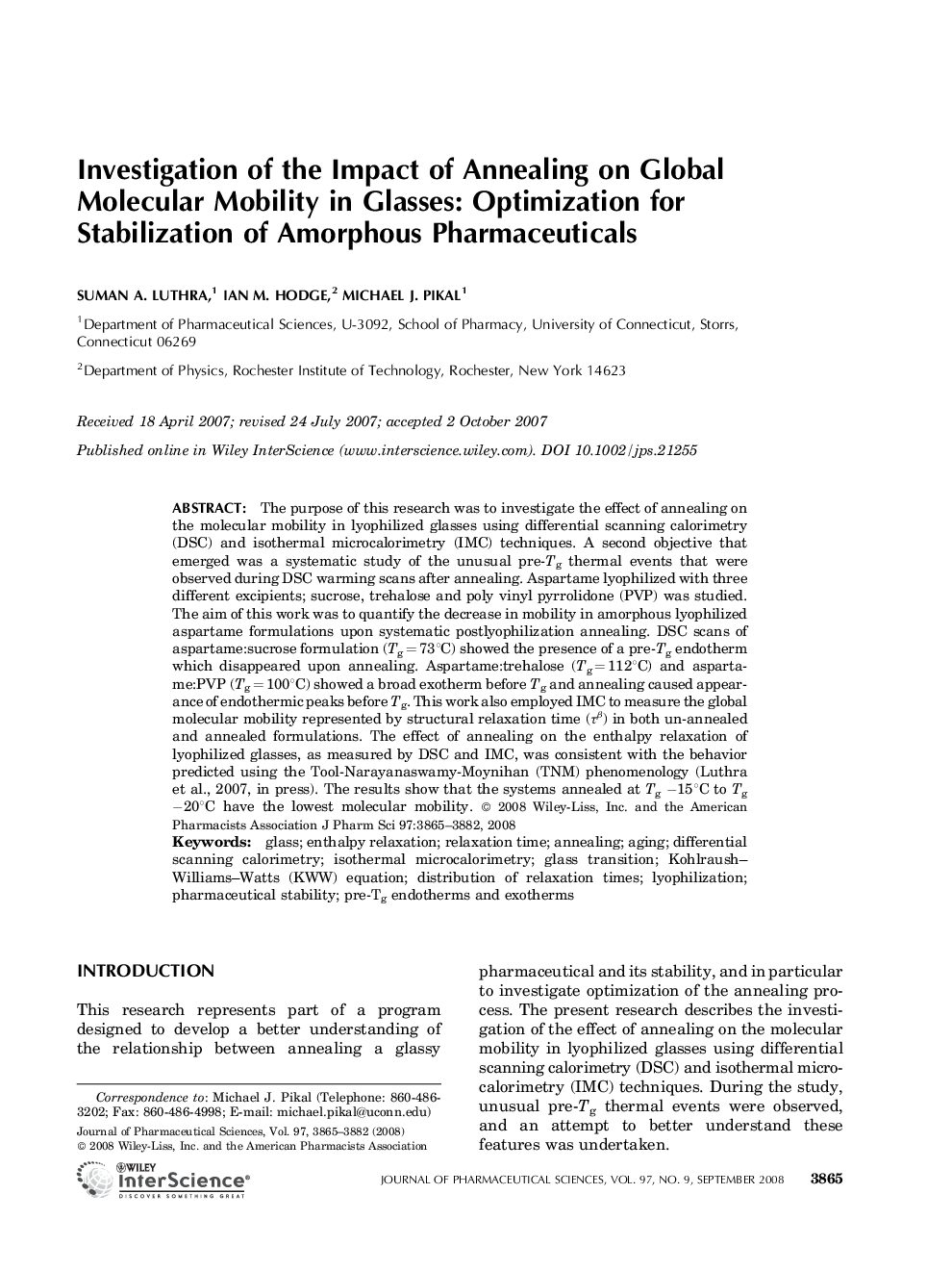| Article ID | Journal | Published Year | Pages | File Type |
|---|---|---|---|---|
| 2487263 | Journal of Pharmaceutical Sciences | 2008 | 18 Pages |
Abstract
The purpose of this research was to investigate the effect of annealing on the molecular mobility in lyophilized glasses using differential scanning calorimetry (DSC) and isothermal microcalorimetry (IMC) techniques. A second objective that emerged was a systematic study of the unusual pre-Tg thermal events that were observed during DSC warming scans after annealing. Aspartame lyophilized with three different excipients; sucrose, trehalose and poly vinyl pyrrolidone (PVP) was studied. The aim of this work was to quantify the decrease in mobility in amorphous lyophilized aspartame formulations upon systematic postlyophilization annealing. DSC scans of aspartame:sucrose formulation (Tgâ=â73°C) showed the presence of a pre-Tg endotherm which disappeared upon annealing. Aspartame:trehalose (Tgâ=â112°C) and aspartame:PVP (Tgâ=â100°C) showed a broad exotherm before Tg and annealing caused appearance of endothermic peaks before Tg. This work also employed IMC to measure the global molecular mobility represented by structural relaxation time (Ïβ) in both un-annealed and annealed formulations. The effect of annealing on the enthalpy relaxation of lyophilized glasses, as measured by DSC and IMC, was consistent with the behavior predicted using the Tool-Narayanaswamy-Moynihan (TNM) phenomenology (Luthra et al., 2007, in press). The results show that the systems annealed at Tg â15°C to Tg â20°C have the lowest molecular mobility.
Keywords
Related Topics
Health Sciences
Pharmacology, Toxicology and Pharmaceutical Science
Drug Discovery
Authors
Suman A. Luthra, Ian M. Hodge, Michael J. Pikal,
